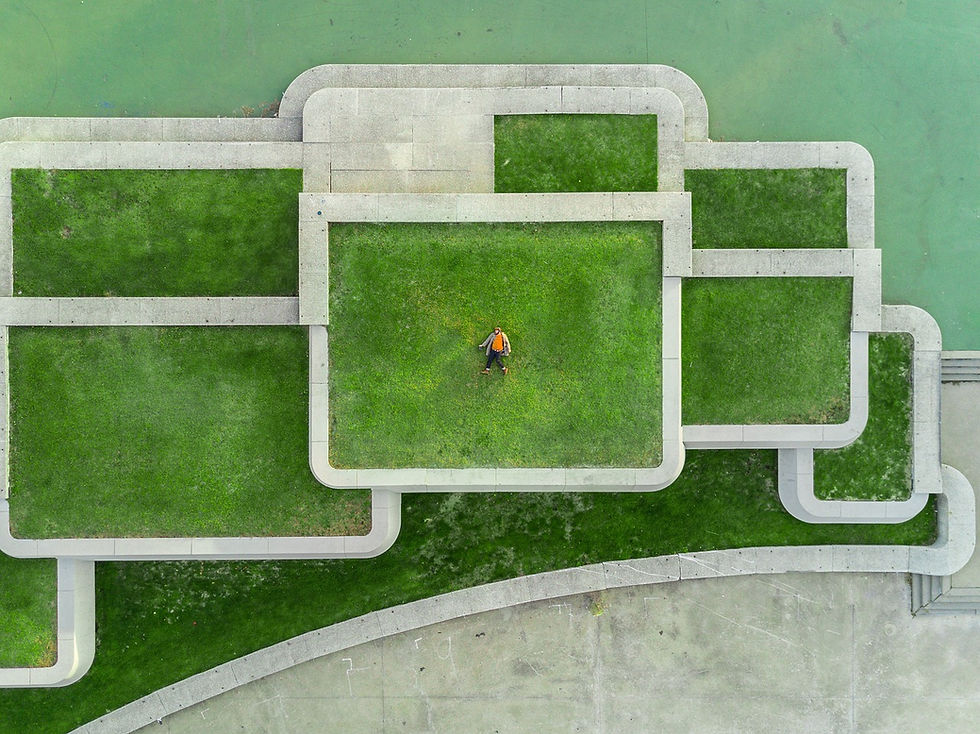Slube hospitality: Redefining sustainable stays along Germany’s scenic routes
- Román Hernández

- Sep 2, 2025
- 3 min read
Updated: Sep 21, 2025

Photo courtesy of: Slube
In an era where sustainable architecture continually pushes boundaries, Slube Tiny Villages stand out as a bold hospitality concept that blends design, ecology, and comfort. These cylindrical units—just 5 m² in footprint—are built from reinforced concrete and rest on minimal foundations to preserve the ground. Based on the guest’s accommodation type choice, Slube features natural thermal insulation, optimized loft beds, a private bathroom, an outdoor terrace, and intelligent systems for controlling lighting and temperature via a mobile app. It’s a perfect mix of spatial efficiency and high-quality living, all while maintaining a strong connection to nature.
Slube is Germany’s smallest hotel.

Photo courtesy of: Slube
Where It Started and Why It Matters
Launched in 2019 by SLUBE GmbH, the project’s first installation appeared in Hoher Fläming, with a last opening in Zehdenick on the banks of the river Havel, an ideal spot on the iconic Berlin–Copenhagen cycle route and one of Europe’s major green corridors. Other locations include the city harbour of Neustrelitz, Greifswal marina, and Krakow on the lake. Thanks to its minimal foundation design, Slubes can be deployed in natural settings without leaving permanent scars.
Sustainable Design with Poise
What makes the Slube distinctive goes beyond its cylindrical form. Positioned for thermal efficiency, the shape reduces heat loss, while the integrated climate control complements natural ventilation. Inside, guests can enjoy a cozy retreat complete with a bathroom, loft bed, WiFi, heating, and intelligent control; all within a small footprint. Amenities do vary based on the accommodation type chosen by the guest.
Photo courtesy of: Slube
Landscapes That Elevate the Site
Besides its thoughtful design, Slube Tiny Village thrives thanks to its picturesque natural surroundings, which reinforce its identity as a hub for sustainability-focused and slow tourism. The village’s locations offer a direct connection to Germany’s lush outdoors and popular eco-routes.
Let’s take a look at some of the available locations:
In Zehdenick, Slube sits along the scenic river Havel, where travelers can rent kayaks, fish, or explore marshlands rich in biodiversity. This proximity to nature enhances the eco-lodging experience and promotes low-impact leisure activities.
To the north, in Neustrelitz, guests are surrounded by the Mecklenburg Lake District, Germany’s largest connected lake landscape. Here, cycling trails, nature parks, and glacial lakes turn every stay into an immersive experience, especially for eco-conscious visitors and families.
The Slube Greifswald location adds coastal charm to the mix, being just a short ride from the Baltic Sea Cycle route; a network of cycling trails that trace the coastline’s untouched dunes, pine forests, and UNESCO biosphere reserves. These natural links not only draw tourists but also support local initiatives focused on conservation and sustainable mobility.
Together, these landscapes don’t just frame the Slube experience—they amplify it, turning each tiny house stay into a gateway for reconnecting with nature with minimal environmental impact.
Photo courtesy of: Slube
4 Things You Might Not Know About Slube Tiny Villages
No large concrete foundations: Units are supported by minimal foundations, minimizing environmental impact.
Fully digital check-in: Guests access the Slube via the app—no staff needed on-site.
Bike-friendly design: All locations are equipped with amenities like bike racks, drying zones, and repair tools.
German-built: Manufactured and assembled entirely in Germany, blending quality with sustainability.
Slube as a Model of Sustainability-Focused Architecture
Slube Tiny Villages proves that minimal living can coexist with intelligent design. Bolstered by modular construction, intuitive technology, and a respectful environmental footprint, it offers a compelling alternative for mindful travelers. By uniting architecture with green routes like the Berlin–Copenhagen and Baltic Sea routes, Slube redefines how small spaces can have a significant impact.

Want to explore more sustainable modular designs?
At The Greener Space, we showcase projects that seamlessly blend innovation, architecture, and eco-conscious living. Dive into our curated content and stay updated on the future of thoughtful travel and design.
Sources:
Zehdenick Tourism – Slube at Marina Zehdenick:zehdenick-tourismus.de/service/aktuelles/news/details/slube-an-der-marina-zehdenick/
Off-to-MV – Slube at Stadthafen Neustrelitz: off-to-mv.com/destinations/a-slube-am-stadthafen-neustrelitz
Business Insider – Slube Tiny Home Hotel: businessinsider.com/tiny-home-hotel-in-europe-photos-tour-inside-
2023-2
NEW HOUSING Tiny House Festival 2024: new-housing.de/en/presse/pressemitteilungen/pressemitteilung_6592.html
Slube: slube.de/
























